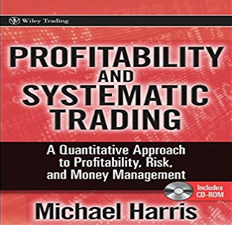This is another post on the defense of common sense. In my opinion some preconceived ideas about probability and risk often attribute some common sense decisions by humans to lack of rationality. Here, I comment on a recent example from another blog.
The following is an excerpt from a blog by Stephen Horan, a contributor to Forbes CFA Institute, which also appeared here:
“Suppose you are sitting in a captivating presentation and someone comes in and locks the door. Then the person announces that everyone in the room is free to leave under two circumstances. You can leave if you pay a $1,000 fee (à la Hotel California) or you can leave after flipping a coin and going double or nothing. If the coin turns up heads, you exit for free; if it’s tails, you pay $2,000.
On a consistent basis, some 80 to 85% of the people in the room choose to flip the coin. The results are always very biased toward flipping, and that says something about the human tendency toward loss aversion.
The classical theory of the rational, economic man would have him avoid risk and thereby avoid the coin flip. The difference in this case, however, is the negative expected returns (a loss of $1,000 in each case since with option B you have a 50% chance of paying $2,000).
Since negative returns are at play, a loss aversion mechanism kicks in, and people will actually go double or nothing in order to keep from losing—thereby taking more risk”.
Source: Forbes.com
I was really surprised when I read this. Actually, Dr. Horan raises some important issues about the notions of loss aversion and rationality used in Economics and Behavioral Finance. In my opinion, this example says little about loss aversion but it says a lot about human intuition and common sense. Let me try to explain why:
Each person in the above example was actually told that he or she owed $1,000 and could either pay right away or flip a coin and pay $0 if heads shows up or $2,000 if tails shows up. Thus, the actual outcomes of this game are:
Outcome heads: You get $1,000 if heads show up. Since you owe $1,000 you are free to go and pay nothing.
Outcome tails: You are charged an additional $1,000. Since you already owe $1,000, you now owe $2,000.
Thus, the expected value of this coin flipping game is:
E(x) = $1,000 x 0.5 – $1,000 x 0.5 = $0
because there is 50% probability of winning $1,000 and a 50% probability of losing $1,000.
Therefore, the choices of each player in the game are as follows:
Choice 1: Pay $1,000. The expected value of -$1,000 is -$1,000. Thus E[Choice 1] = -$1,000
Choice 2: Flip a coin with expected value $0 and then add what you owe. E[Choice 2] = -$1,000 + $0 = -$1,000
We see that the expectation from both choices is the same and equal to -$1,000. So why does the majority of people go with Choice 2?
The quoted article refers to this behavior as “non rational”. In my opinion flipping the coin is dictated by common sense. Let us suppose that in the room there are 100 individuals. If all of them pay the $1,000 fee, then the house collects $100K. However, if they all flip the coin, the house will still make $100K because the expected gain from the game is zero but half of the people will walk away paying nothing. Each person has probability 50% of paying nothing, although the expectation of the game is zero. Thus, most people will choose to flip the coin. This – i.e. flipping the coin – is a decision dictated by common sense. Humans have common sense and they weigh probabilities of winning versus what it is at stake. It is the educational establishment with its pre-concieved ideas and dogmas about human behavior and probabilities that often attributes wrongly decisions based on common sense to “non rational” behavior about risk taking.
Let us change the game a little:
Everyone in a room is told they owe $1,000 and they can flip a coin. If heads shows up they pay nothing. If tails shows up they pay $1 Million. How many do you think will flip the coin?
Let get serious about reconsidering the whole framework of probabilities and their relation to human behavior. The guiding principle should be common sense.






